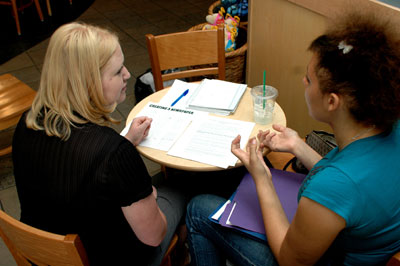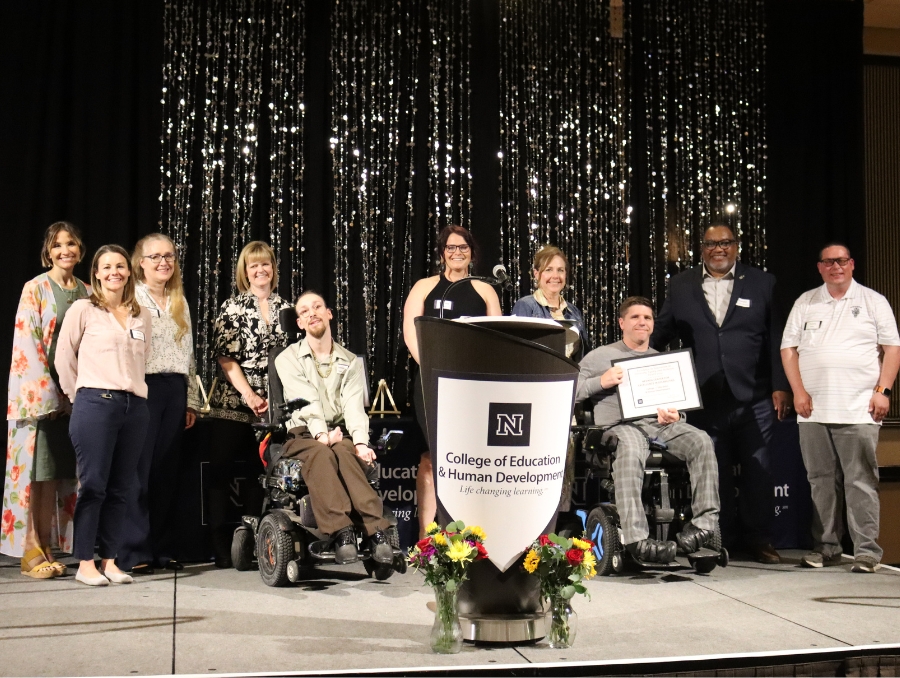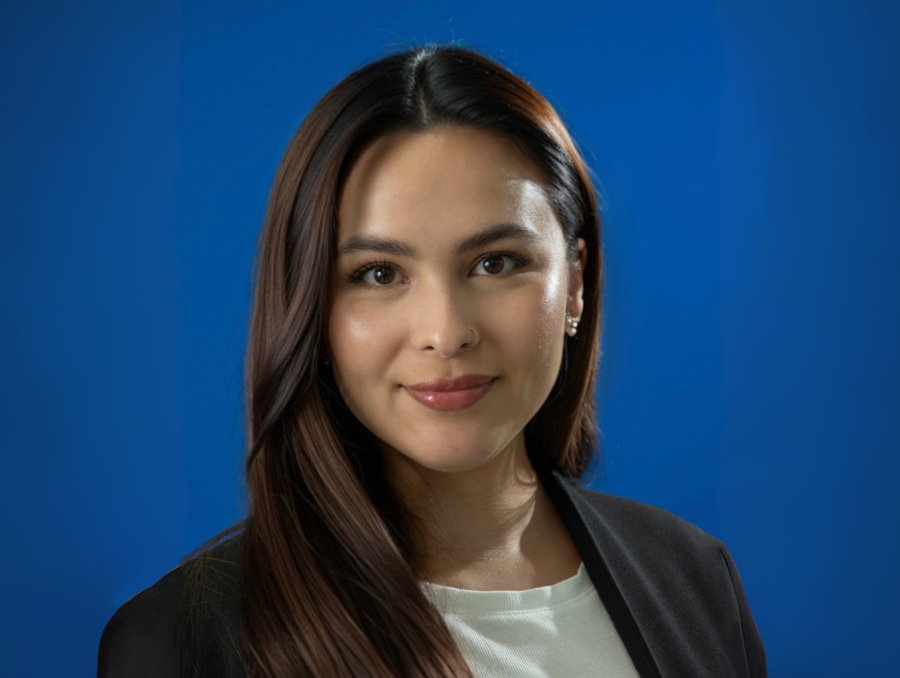Natalie Savidge is a media specialist for the University’s Media Relations office. On Feb. 27, the 2004 Nevada alumna volunteered to mentor a Hug High School student in the ASCENT mentor program, a partnership between the University and the Washoe County School District. This is her first-person account of the first five months of her mentoring experience with her mentee. Read more on her blog: natidge.blogspot.com
After an hour-long meeting with my newly introduced mentee this spring, I walked behind her out of the Hug High School library and caught a glimpse at her backpack. It was black with a bright-yellow lightning bolt and cartoon image of Superman.
“Superman, huh?,” I asked, eager for one last response before we parted.
“Yeah, Superman is a cool superhero,” she responded. “He’s someone I admire.”
I’m more of a Clark Kent girl, but I was impressed that my mentee was wilder about the comic book character’s more noble qualities.
Tayla Parr-Rudd is a 16-year-old junior at Hug High who lives with her 12-year-old sister, Janay, her mom, Jennifer, and her grandmother.
Since her grandfather passed away and her father moved to Tacoma, Wash., a few years ago, Parr-Rudd has described many of her recent experiences as “hard times.”
However, Tayla’s close relationship with her mom and many friends at school have helped her remain optimistic. I hoped that this new mentorship would help elevate that optimism and give momentum toward her pursuit of college.
“I love going to Hug, and wouldn't have it any other way,” she said of the northeast Reno school. “I find it’s giving me a good opportunity.”
Tayla already has some big aspirations.
“I don't think photography was always my main goal, but it is now because it’s so interesting and you can turn so many things into a beautiful portrait,” Parr-Rudd said.
Tayla’s interest in photography is intertwined with fashion design, influenced by reality shows like the CW’s popular America’s Next Top Model. She says she could see herself involved in fashion photography shoots, film developing and image editing.
As her college mentor, it is my pleasure and opportunity to discuss upcoming assignments and areas where she might need more help, such as geometry.
I also work with her on projects like her summer assignment in Advanced Placement U.S. History. She has been tasked with creating a colonial newspaper, including articles, letters to the editor, a political cartoon, advice column, and an interview with a British soldier and colonial militiaman.
Thankfully, Parr-Rudd loves history and has already picked five topics dealing with colonial life and what led to the Revolutionary War. But as I help her with the newspaper layout and questions along the way, we are both learning.
A solid relationship takes time and commitment. Regularly scheduled lunch get-togethers, phone calls, emails and text messages help keep this mentorship on track.
Each time we meet, we add to her “college folder,” filled with college admission documents, summer program notes, financial aid and scholarship information, and photography and design tips. All of this information will be helpful in meeting her dream of enrolling at her university of choice.
“I am happy my daughter is involved with this program,” says Tayla’s mom, Jennifer Parr-Rudd. “She wants to go to college and I can’t help her all on my own.”
“The best part of being mentored is having someone to inspire you,” Tayla says. “I am glad to have someone help me get into college, give me good advice and options in order to actually succeed.”
Whether helping a student with an AP project or just talking to them about their summer, each moment for a mentor becomes an opportunity for support and inspiration.
I’m looking forward to the mentor training workshop on Aug. 12. It will provide new and seasoned mentors alike with all the support they’ll need to be a great help to their student. Each mentor will receive the Nevada ASCENT Mentor Training Handbook.
Workshop topics and training include discussion on cross-cultural mentoring relationships, and ways to create safe and trusting relationships and generational communications. We’ll also look at getting mentees college-ready, and strategies for sending more students to college.
ASCENT always looking for volunteers
ASCENT, an acronym for All Students College Educated in Nevada Today, is a partnership between the University of Nevada, Reno and the Washoe County School District that aims to help high school students seek and succeed in higher education.
The program, based on a model started by the Gates Foundation in Seattle, began at Hug in 2007, with 160 mentor/mentee pairs.
“This is one of many student success services initiatives,” said Fabienne McPhail Naples, associate vice president for Student Success Services. “We want to serve first-generation students, single moms, foster children and other nontraditional students.”
Hug’s ASCENT program currently pairs members of the community with high school sophomores based on shared interests. The mentors’ primary focus is to help students reach their goal of attending college. Next spring, the program is preparing to expand and will start matching mentors with high school freshmen.
This fall, the program will bring mentors and mentees together for a tour of the University campus. Additional fall events include a scholarship and financial aid workshop as well as an invitation-only gathering for mentees to attend a Wolf Pack men’s basketball game.
Volunteer mentors are asked to commit up to three hours monthly for activities with their mentee. They spend time discussing college aspirations and mentors offer guidance on college applications, financial goals, scholarship and career opportunities.
Many of the students will be the first in their families to attend a university. The ability to ask the right questions, raise the important issues and point the mentees to helpful resources is critical for their pursuit of higher education.
Volunteers mentoring sophomores help prepare them for ACT college entrance tests, evaluate proficiency-exam scores, discuss career choices and personal finance management, and review weekly report cards and attendance records. Mentorship topics evolve based upon the mentees’ individual goals and timelines.
Mentors working with juniors help them prepare for advanced placement and SAT college entrance tests, evaluate proficiency-exam scores, submit scholarship applications, assist students enrolling for summer school classes, and help them coordinate summer planning.
Next year, when the first wave of mentees is scheduled for high school graduation, the program will be assessed to discover what effect the mentors had on the students. Scholarships will also be awarded to top-performing and most participatory mentees.











